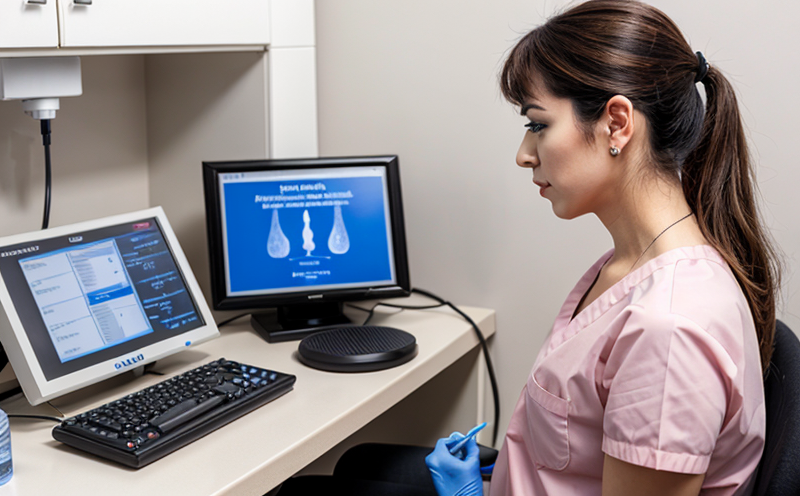Cortisol Biomarker Testing in Primate Welfare Studies
The use of cortisol biomarkers is increasingly recognized as a critical tool in assessing stress levels and overall welfare in primates used for research, breeding, and conservation efforts. Cortisol is the primary glucocorticoid hormone produced by the adrenal cortex in response to stress, and its measurement provides insight into the physiological state of an animal.
In primate welfare studies, monitoring cortisol levels can help researchers understand how environmental factors, handling practices, or experimental protocols affect the animals' health. This information is crucial for ensuring ethical treatment and compliance with international standards such as the Guide for the Care and Use of Laboratory Animals (NIH publication 86-23) and the European Union Directive on the Protection of Animals Used for Scientific Purposes.
Our laboratory offers specialized cortisol biomarker testing services tailored to meet the unique needs of primate welfare studies. We employ advanced methodologies that ensure accurate and reliable results, providing valuable data for researchers working in this field. The process involves collecting blood or saliva samples from primates under controlled conditions, followed by precise analysis using validated techniques.
The significance of cortisol testing extends beyond mere compliance; it plays a pivotal role in improving animal welfare by identifying stressors and implementing mitigation strategies. For instance, elevated cortisol levels may indicate prolonged periods of stress, which could compromise the health and well-being of the animals involved in these studies. By integrating cortisol biomarker data into experimental designs, researchers can optimize protocols to minimize distress while maximizing scientific outcomes.
Our laboratory adheres strictly to international standards, including ISO 17025 accreditation for our testing facilities, ensuring that every aspect of the cortisol analysis process meets stringent quality control criteria. This commitment to accuracy and precision ensures that clients receive reliable results they can trust when making important decisions about primate welfare.
The importance of cortisol biomarker testing cannot be overstated, especially in light of growing concerns over animal ethics and welfare. As research continues to evolve, so too must our methods for assessing stress responses in non-human primates. By leveraging cutting-edge technology and rigorous scientific practices, we aim to contribute meaningfully to the field of primate welfare studies.
Applied Standards
- ISO 17025: Our laboratory is accredited under ISO 17025, which sets forth comprehensive requirements for the competence of testing and calibration laboratories. This accreditation ensures that all aspects of our cortisol biomarker testing processes adhere to internationally recognized standards.
- National Institute of Health (NIH) Guidelines: We comply with NIH publication 86-23, which provides guidelines for humane care and use of laboratory animals. These regulations emphasize the importance of minimizing distress during sampling procedures and ensuring ethical treatment throughout all stages of research.
Scope and Methodology
The scope of our cortisol biomarker testing encompasses a wide range of applications within primate welfare studies. Our team utilizes state-of-the-art instrumentation and techniques to ensure accurate measurement of cortisol levels in both blood and saliva samples collected from primates.
For blood sample collection, we use venipuncture under sedation or anesthesia, depending on the species and study requirements. This method allows for precise sampling while minimizing potential stress to the animal. Saliva samples are typically obtained through oral swabs, which can be less invasive but may require longer collection times.
Once collected, specimens undergo rigorous preprocessing steps before being analyzed using highly sensitive immunoassay technologies. These assays detect cortisol concentrations with high specificity and sensitivity, ensuring accurate measurement even at low levels. Our laboratory also employs internal quality control measures to maintain consistency across all test runs.
The results of our cortisol biomarker tests are presented in standardized formats that include raw data points along with interpreted findings relevant to the specific study objectives. Clients receive detailed reports outlining the statistical significance of any observed changes over time or between different groups within the research design.
Industry Applications
- Breeding Programs: Monitoring cortisol levels helps breeding programs identify optimal times for introducing new individuals into colonies to reduce stress during acclimation periods.
- Experimental Protocols: By tracking changes in cortisol levels, researchers can evaluate the effectiveness of various experimental conditions on primate behavior and health.
In addition to these direct applications, cortisol biomarker testing contributes indirectly by informing broader discussions around animal ethics and welfare standards. As awareness grows about the importance of minimizing stress during research activities, more institutions are adopting policies that prioritize humane practices over mere compliance with minimal requirements.





